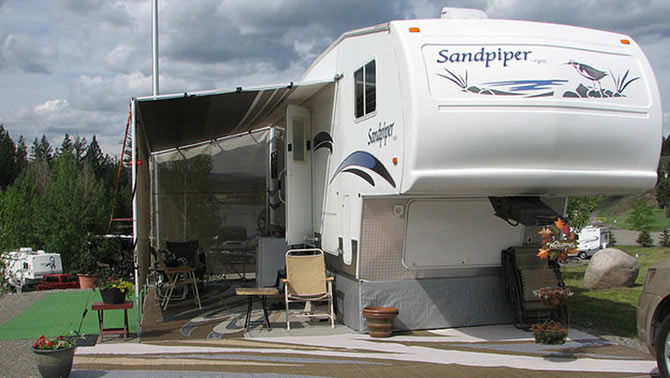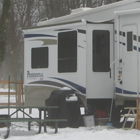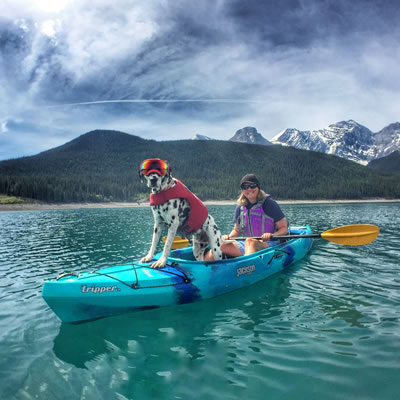Retire to an RV
Make sure you do your research—have a heart-to-heart with your spouse, talk with friends and family—before making the important decision of living the RV life full-time.

Many people dream of retiring and travelling full-time in an RV but sometimes the reality is different from the dream. That doesn’t mean the reality isn’t possible because it is. It’s a lifestyle choice that should be considered carefully before jumping in with both feet. Both members of the couple must agree since this can be a difficult decision if both don’t have similar goals. It’s best to sit down and put all your cards on the table for what your expectations are (both of you). If you aren’t in complete agreement it’s time to come to a compromise. If one of you isn’t sure, why not do a trial run—say for a year or six months and re-evaluate at the end of that time. It’s really important to remember living the full-time RV lifestyle is not a vacation—it’s a way of life. Those who retire to an RV sometimes don’t understand the difference until they have been on the road awhile. It’s common for new retirees to rush around constantly as if they were on a two-week vacation trying to see and do everything as quickly as possible.
Things to consider when choosing the RV Lifestyle:
1. Finances - The cost of full-time RVing is dependent on the amount of travelling that’s done, the price of the RV, parking fees, insurance, fuel, restaurants, groceries, medical, and personal expenses. Some say it’s cheaper than living in a house but it’s really up to the individual. Research where you want to go and what you want to do and by knowing your budget you should be able to come up with a plan that works for you.
2. Planning - What will you do with your house and all of your stuff? Where will you receive your mail? What type of RV do you want or need? What is your budget? How will you stay in touch with family and friends? What will you do if you have to hang up the keys? These are just a few of the questions you should ask yourself during the planning stage. The answers don’t have to be cast in stone but you should have a clear idea of what you really want.
3. How much travelling do you wish to do? Not everyone who is a full-timer does a lot of travelling while others move every few days. Many find that the first year or six months they do a great deal of travelling until they realize they aren’t on a holiday and can travel in leisure without hurrying. The more miles driven the more expensive the travelling can be.
4. Educating family and friends. Not everyone understands the full-time RVing lifestyle and can make you second-guess your decision. Just remember, it’s your decision for your life and once they realize how happy you are and they still can be in touch regularly they will come around. Visiting family members can be easily done since you will bring your home with you and have everything you need in your RV unit. No one is inconvenienced by having to give up a bed or space and you have a place for some quiet time if you need it.
5. Challenges. One challenge to consider is adjusting to living in a small space with your spouse—that may prove interesting. Many couples find they are much closer and really enjoy getting to know each other again. Maintaining the RV may be a new task for some and learning how to tow or drive their rig is another. The need for a home base can be a challenge but it’s not insurmountable and with a little ingenuity the problem can be solved.
6. Benefits. There are so many benefits to full-time RVing that it’s difficult to list them all but the main two benefits I think to living in an RV is having the ability to be mobile and to simply your life as well. The potential for living cheaper, meeting new people, experiencing new things and being open to new challenges are invaluable and should be appreciated.
Living the full-time RV Lifestyle, as a retiree can be an exiting new adventure at the next phase of your life—so make it interesting and enjoyable. Happy retirement as you retire to an RV.








